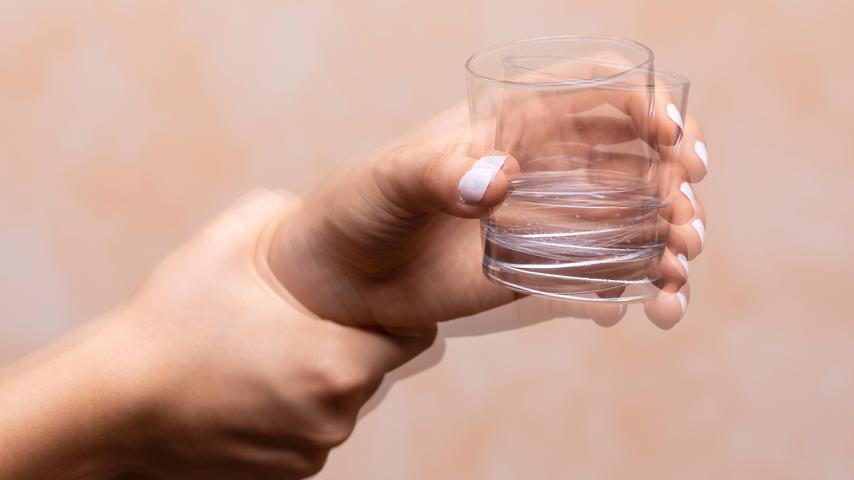World Parkinson's Disease Day

Are people with Parkinson’s Disease more at risk of catching COVID-19?
Parkinson’s Disease itself does not increase the risk of catching COVID-19. However, older adults are at the highest risk of developing a severe case of COVID-19, and because most patients with Parkinson’s Disease are typically older, they should take extra precautions to protect themselves.
Patients with Parkinson’s Disease should:
- Stock up on necessary medications and supplies that can last for a few weeks
- Avoid crowds and non-essential travel
- Stay at home as much as possible
- Older patients with Parkinson’s Disease should also consider getting vaccinated against pneumonia as COVID-19 infection may lead to Pneumonia, especially in the older population. They should consult their healthcare providers if they show any COVID-19-like symptoms
Advice for family members and caregivers
Family members and caregivers of people with chronic diseases such as Parkinson’s Disease should take appropriate precautions and take extra care. They should constantly monitor patients and try to minimize their trips outside to avoid the risk of getting in contact with the virus.
People who show symptoms of COVID-19 should avoid visiting their family members in nursing homes or other places until the self-isolation period is complete.
What should COVID-19-positive Parkinson’s patients do?
If doctors confirm that the patient has COVID-19, they should follow these steps to prevent the spread of the infection:
- Stay at home, preferably in a separate room not shared with others, and isolate yourself, except for getting medical care
- Avoid public areas and public transport
- Limit contact with pets and animals
- Avoid sharing personal items
- Cover coughs and sneezes with tissues and dispose of them properly
- Sanitize hands regularly
- Disinfect surfaces such as phones, keyboards, toilets and tables
- Patients should book their doctor appointment in advance. This way the hospital can take necessary steps to prevent the spread of the infection
- They should wear face masks when going out. The WHO has resources explaining the proper use of a face mask
What tests are available?
Many tests for the detection of COVID-19 have been made available under the FDA’s emergency use authorization, including rapid tests that are being developed to detect the presence of the virus within minutes.
The Foundation for Innovative New Diagnostics provides an up-to-date list of different manual and automated tests that are available or currently in development.
Is there a treatment?
There are currently no vaccines available for COVID-19. This makes the prevention and containment of the virus very important.
Oxygen Therapy is the major treatment intervention for patients with severe disease. Mechanical ventilation may be necessary in cases of respiratory failure.
Are there new treatments in the pipeline?
Several clinical trials have been launched or are being planned to test a variety of potential treatments and vaccines for COVID-19.
Anxiety is a common symptom for people with Parkinson’s Disease. It is an uneasiness/nervousness over impending/anticipated illness and can lead to an abnormal and overwhelming sense of fear. In these times, anxiety surrounds us. A chronic disease such as Parkinson's can elevate anxiety above and beyond what you may normally experience.
Since the emergence of COVID-19, it's been drilled into our heads that we need to wash our hands excessively, avoid crowds, and when possible, curtail travelling. This is great for keeping us from getting the virus, but what about keeping our minds healthy? You can't wash your Brain excessively, so what can you do?
Top advice for people with Parkinson's who ask about tips for optimal health usually goes in this order
- Find a Movement Disorder specialist doctor and build out your care team with a nurse physiotherapist and home helper
- Get your medications in stock and then take them on time
- Exercise, exercise, exercise!
- Take care of your mind and find ways to lessen the stress and anxiety in your life. This is particularly important at this time. You may find ways to lessen anxiety through mindfulness activities or meditation. Each person will find their journey to finding peace and joy through good health
Dr Pankaj Agarwal
Senior Consultant Neurology and Head of Movement Disorders Clinic, In-Charge DBS Program, Gleneagles Hospital, Mumbai
Disclaimer: The views and opinions expressed in this article belong solely to the author. They do not reflect the opinions or views of the organisation.










